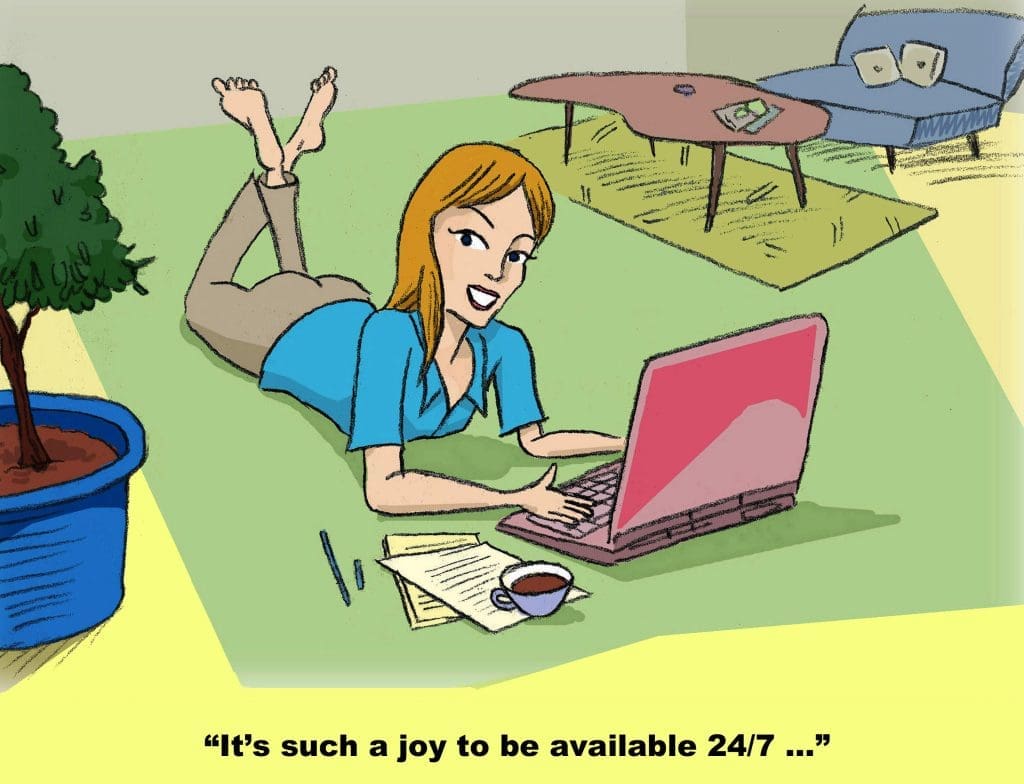These times are presenting us with a new world where most of us are working remotely or, maybe, will be doing so shortly. The pandemic crisis is here, and the best solution is to separate us all. It is an important time to have to learn new skills. And even enjoy morphing into your new daily routine. For most of us, we hate this type of crisis-induced change.
Turning lemons into lemonade requires being willing to change
Change is pain. But especially now, change is absolutely necessary. Here are the challenges and opportunities:
First, your brain hates to change. It is happiest when it is doing what it has always done. When something critical happens, like this pandemic, your brain is creating a lot of cortisol, and its decision-making parts are going into overdrive. You have to learn a new routine from the time you wake up until you head to sleep. All the while, your mind is struggling with big questions like, “What is next on my calendar?” or “When can I find some quiet time for myself?” Or maybe you are grappling with how to get your Microsoft team working remotely and are frustrated that there is no IT specialist running around to help you.
Second, you can get your brain to love the new, and in the process, learn how to adapt to changing times. It will serve you well in the future. Remember how immigrants came to the U.S. with limited resources and managed to change, to adapt? Or how you went off to college and changed? People can change, and you can adjust as well.
Some things to consider
Real, lasting change just requires a bit of focus (your brain needs that) and rehearsal time. It also needs others to affirm that what you are doing is the right thing to do. No need to do it alone. To get this kind of confirmation:
- You need to focus on the changes. The brain must focus hard on the new and get the old out of there. You can’t go to the office now, so focus on what is coming next.
- Practice, practice, practice. You wouldn’t go on stage to perform without a lot of rehearsal time, visualization and coaching. The change you’re facing now needs some of the same. You are now an improvisational artist. Enjoy the new job you have. Make it up. It is ok not to be perfect, or even right. Just try new things and see what works for you.
- Empathy is so important. Try to say, “I feel your pain,” and see what happens. Think about this as a “we” problem that together we can solve. The brain is happier when you talk about how “we will work to solve this” than “I need you to do this.” If you don’t know much about the power of “we,” take a look at “Conversational Intelligence“ by Judith Glaser and see how it can help your new experiences.
Thriving in new times
What to do to help yourself thrive in these new times? Here are some ideas that I hope are of help to you. I know I am not alone in sharing these, but it doesn’t hurt to hear it from a culture change expert, and you are, indeed, changing the values, beliefs and daily habits that make up your culture. Time for a new culture that you will “love” — or at least feel more comfortable living.
- You need a headspace. I got a call from someone who started by saying, “I am sitting in my car. I needed some space from…” and you can fill in the blank. It is ok. You can say, “I am taking a walk, have to get out of the house.” But be careful. Try not to push your significant other and the kids out of “Your Kitchen.” Make it theirs as well. Difficult, but sharing is an excellent antidote for people in the same house all day long.
- Yes, you need a workspace, but what does that mean for you, your spouse or partner, or your kids? Step back and give it some good thought. Why is space so important? As humans, we like to be comfortable in a place where we feel safe and secure. Where we feel it is ours. Why? It is how we create comfort and order for our daily living. Remember when you got your own space at work? Were you in a cubicle or the corner office? Why did it matter? What is the value people place on “space”? Space is not without meaning.
Staying connected while keeping apart
How do you unplug and friend-up when you have to stay six feet apart and there is no place to go? You can’t make dinner plans or attend conferences. Here are some clever and easy ideas people have sent me:
- One woman does her dance class via Zoom and is having a blast.
- Another woman teaches Pilates and yoga. She took a dozen of her clients outside and separated them to conduct the class. They enriched their bodies and minds and were careful not to invade each other’s space limits.
- A lot of folks are conducting FaceTime, Skype, Zoom and Team meetings to bring a real face into the conversation. We are monkeys, and we bond best when we see others.
- Families are hiking at all times of the day and all days of the week.
What’s up next? Boredom, depression?
You might be hearing that all over the place. By now, both you and your family are probably incredibly bored. But you don’t have to be. Create lists of things you can each do. Plan your day the night before so you don’t wake up and wonder where to begin. This plan is essential. Your brain likes a plan. And your day requires one.
Lastly, don’t forget about depression. The research is very compelling. Families that sit at the table and talk to each other three or more times a week tend to have less depression. It is time you put those discussions into the family meals to keep you happily connected.
This new mindset is going to stay around for some time. It is time to learn how to manage your mind.
I always like to share Winston Churchill’s perspective:
“A pessimist sees the difficulty in every opportunity; an optimist sees the opportunity in every difficulty.”
Enough for now. I’ll be back with more as we all move forward during this Pandemic of 2020.
From Observation to Innovation,

Andi Simon, Ph.D.
Corporate Anthropologist | President
Simon Associates Management Consultants
Info@simonassociates.net
@simonandi
Don’t miss an episode of my On The Brink podcast! Subscribe now



